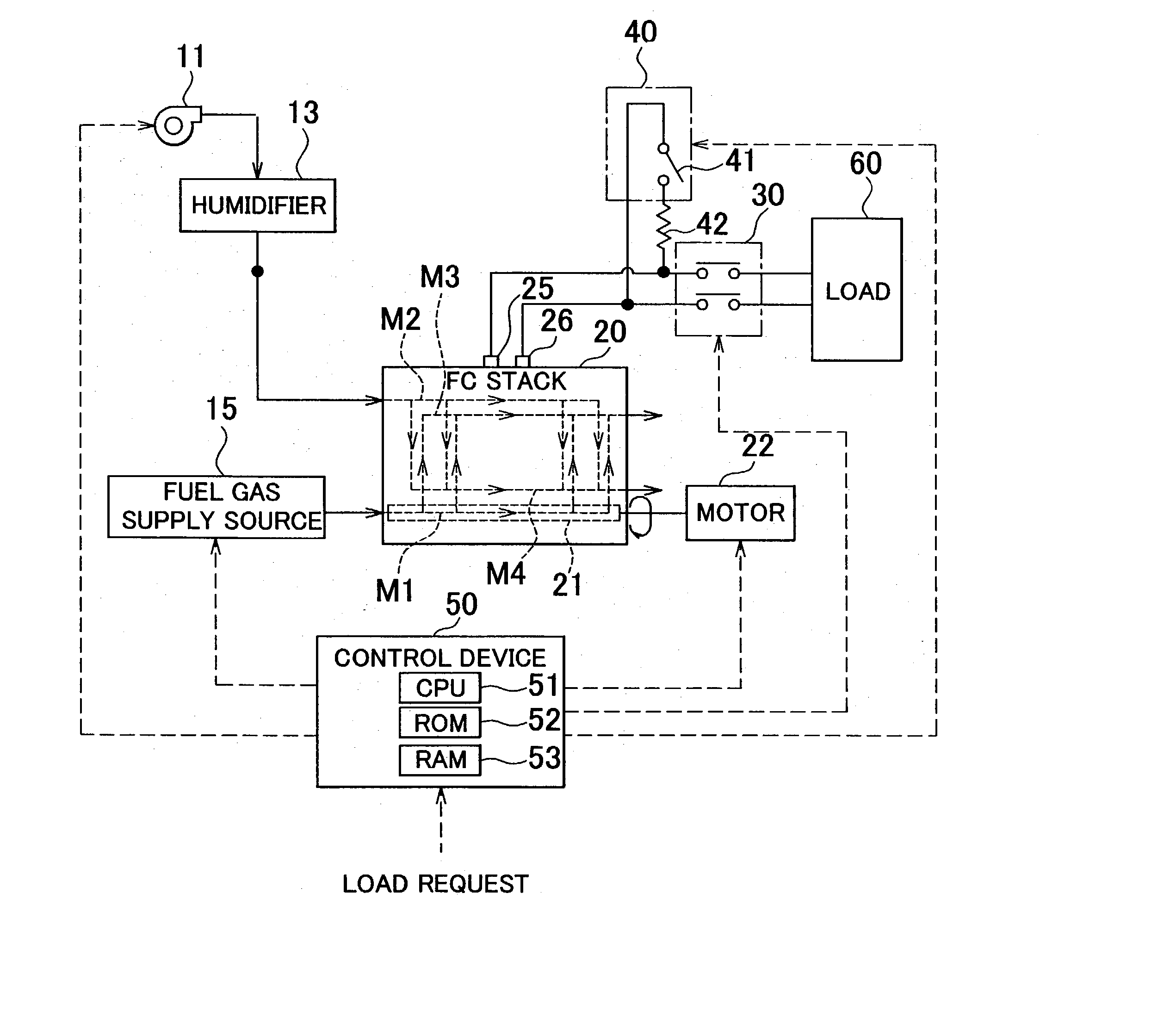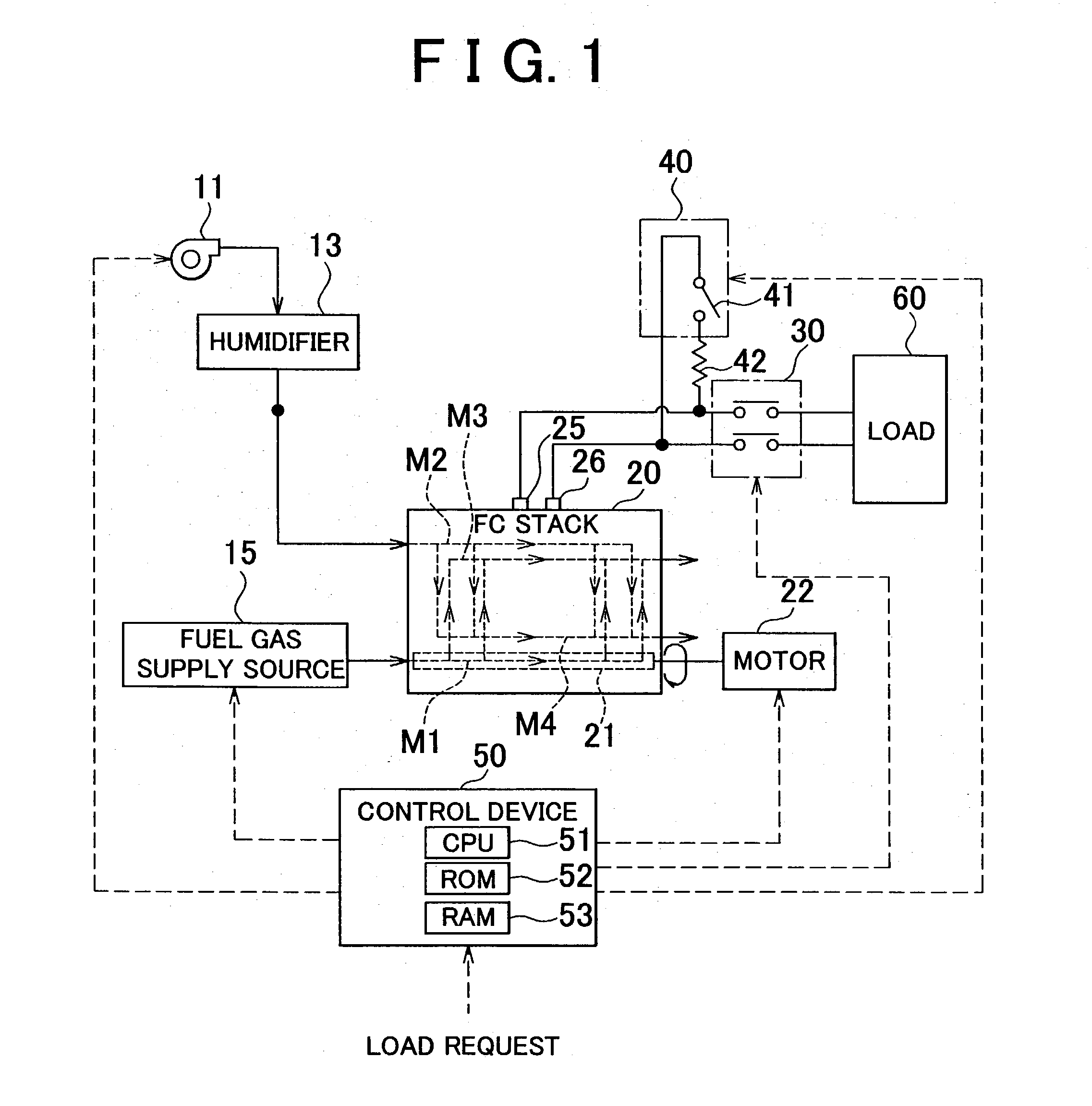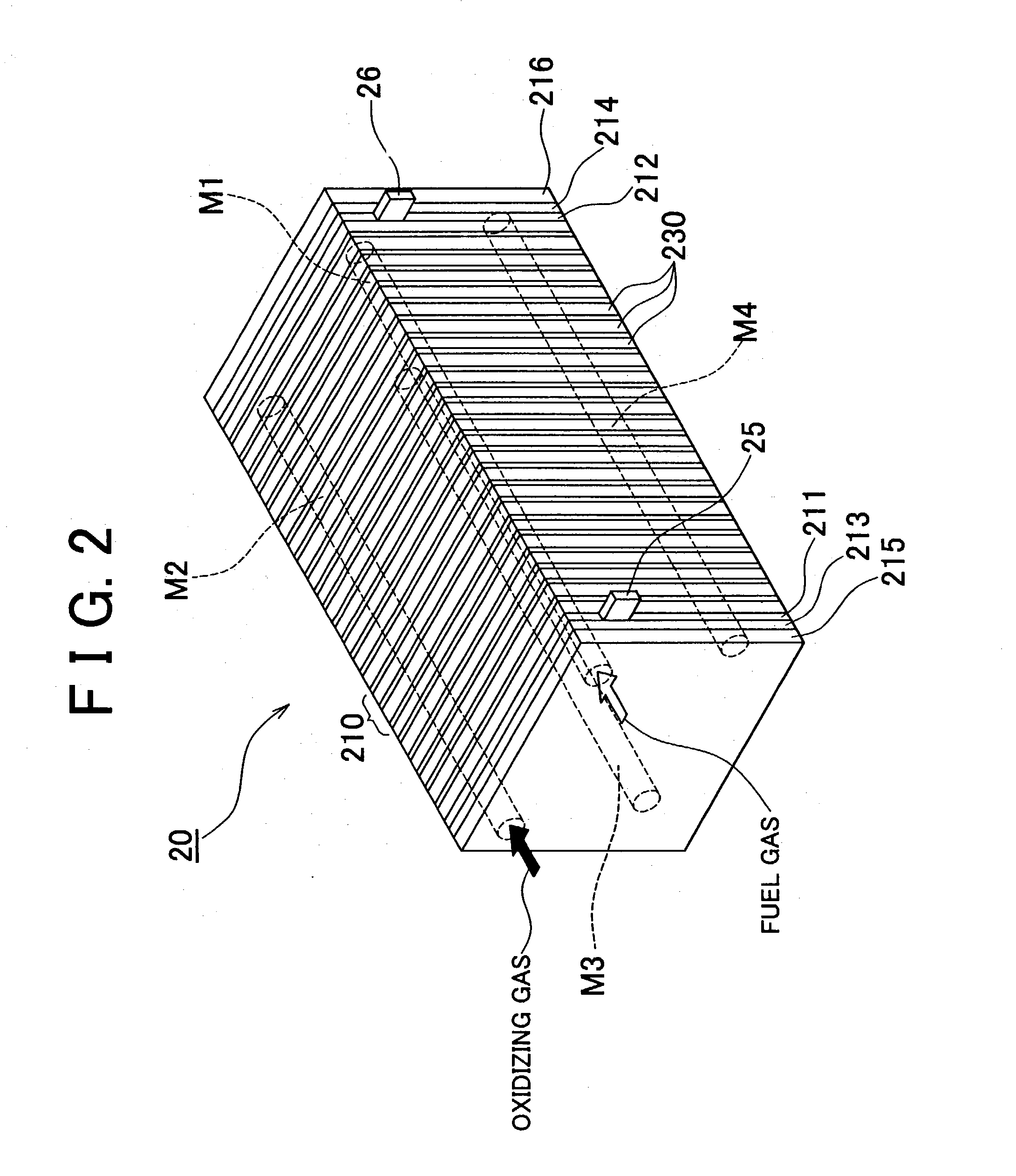Fuel cell system and control method of the same
a fuel cell and control method technology, applied in the direction of battery/fuel cell control arrangement, cell components, electrochemical generators, etc., can solve the problems of large amount of heat generation, damage to electrolyte membranes, and inability to obtain sufficient durability
- Summary
- Abstract
- Description
- Claims
- Application Information
AI Technical Summary
Benefits of technology
Problems solved by technology
Method used
Image
Examples
Embodiment Construction
[0023] In order to further clarify the invention, hereafter, an exemplary embodiment of the invention will be described with reference to accompanying drawings. FIG. 1 is a block diagram schematically showing a fuel cell system 10 according to the embodiment, FIG. 2 is a perspective view of an FC stack 20, and FIG. 3 is an exploded perspective view of a unit cell 210.
[0024] The fuel cell system 10 according to the embodiment mainly includes a fuel cell stack (hereinafter, referred to as an FC stack) 20 of a solid polyelectrolyte type, a first interrupter 30 which is provided between output terminals 25, 26 of the FC stack 20 and a load 60, a second interrupter 40 which is provided between the output terminals 25, 26 of the FC stack 20, and a control device 50 which controls a supply of fuel gas and oxidizing gas to the FC stack 20 and controls connection and disconnection by the first interrupter 30 and the second interrupter 40.
[0025] The FC stack 20, which will be described later ...
PUM
| Property | Measurement | Unit |
|---|---|---|
| proton conductivity | aaaaa | aaaaa |
| durability | aaaaa | aaaaa |
| heat | aaaaa | aaaaa |
Abstract
Description
Claims
Application Information
 Login to View More
Login to View More - R&D
- Intellectual Property
- Life Sciences
- Materials
- Tech Scout
- Unparalleled Data Quality
- Higher Quality Content
- 60% Fewer Hallucinations
Browse by: Latest US Patents, China's latest patents, Technical Efficacy Thesaurus, Application Domain, Technology Topic, Popular Technical Reports.
© 2025 PatSnap. All rights reserved.Legal|Privacy policy|Modern Slavery Act Transparency Statement|Sitemap|About US| Contact US: help@patsnap.com



